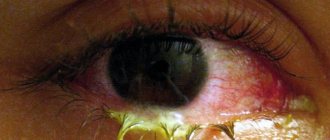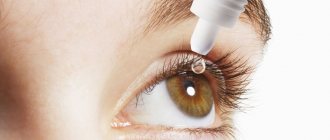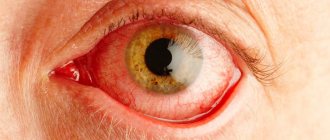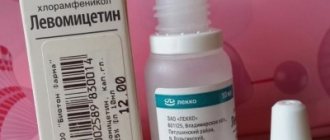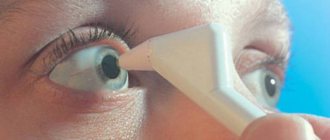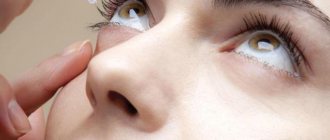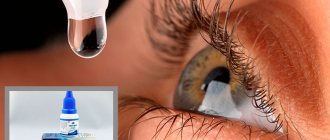How to choose a nasal spray and drops for a runny nose: advice from medical experts
The pharmacy range of nasal products is so wide that it is easy to get confused. And it is wrong to focus only on the price of medications when choosing them, because you can buy a medication that will not have any effect or even cause harm to your health.
But by using the following tips, you can always buy effective nasal sprays, drops and ointments.
First you need to determine the cause of rhinitis (runny nose). It can occur due to hypothermia, due to viral infections, under the influence of allergens or due to bacterial activity.
When you already know what triggered rhinitis, selecting sprays and nasal drops will not take much time, because each drug has its own indications for use and acts on a specific type of pathogen, for example, a virus or bacteria.
Before purchasing nasal medications, it is best to consult with your family doctor and carefully study the instructions for the medication. If you are allergic to any component of the drug or have contraindications for use, then you should discard the medication.
Now we will look at 6 types of medicines for rhinitis and tell you how to cure a runny nose.
Indications for the use of eye medications in otolaryngology
So, the main indications for the use of eye drops for a runny nose can be considered to be its bacterial nature. Products based on antibiotics and antiseptics can fight such an infection, although we are not talking about a 100% guarantee. Ideally, find special preparations with the same effect for the nose.
A sign of the presence of bacteria is known to be green or yellow color of nasal discharge. If this symptom is present, the patient is recommended to intensively instill his nose with saline solution for the first week in order to moisturize. If after seven days the color of the discharge does not change and its quantity does not decrease, you can try ophthalmic agents, which are considered as a last resort.
No. 1 Vasoconstrictor nasal drops and sprays
As a rule, a runny nose is accompanied by swelling of the nasal mucosa, and to relieve it, you can use vasoconstrictor nasal drops or sprays. They constrict the vessels located in the mucous membrane of the nasal passages, as a result of which the blood flow to them decreases and the swelling subsides.
Such nasal remedies have a symptomatic effect, but do not eliminate the cause of rhinitis. After instillation or injection, a person’s nasal congestion goes away and nasal breathing becomes easier. They also inhibit the process of mucus secretion from the sinuses and make the mucous membrane drier.
Vasoconstrictors, for example, include:
- Naphthyzin;
- Farmazolin;
- Eucazoline;
- Knoxprey;
- Otrivin;
- Lazorin.
Levomitin in the nose: using eye drops for a runny nose
At an early age, children are often susceptible to colds. With weak immunity, the course of the disease is complicated. A runny nose that lasts for a long period of time is a sign of infection with microbes. Levomycetin drops in the nose can help this problem. These are eye drops in ophthalmology, but they are often prescribed when a child has a cold.
Properties of the drug
Its area of application is intended for the eyes. They are used if the disease is infectious. The drug has antimicrobial properties. Its active ingredient is chloramphenicol.
The ingredients are boric acid and water. These substances have an effect on pathogenic bacteria. The uniqueness of the medicine in its wide range of action.
Immunity to components occurs very rarely.
Among the most common diseases for which the medicine is used is barley. In young patients, conjunctivitis often occurs with dacryocystitis and doctors prescribe dripping it into the eyes, while simultaneously massaging the lacrimal gland.
According to the instructions for use, the drug is designed for therapeutic eye care, but if the cause of the disease is bacteria in the nasal cavity, then it is recommended to use it to treat a runny nose. It has the properties of a local antibiotic.
Application by drop
Prescribing Levomycetin nasal drops is acceptable for rhinitis caused by microorganisms resistant to antibiotics of the penicillin and sulfonamide groups, that is, when the cause of the disease is bacteria.
Treatment for adults
They are sometimes prescribed to adults. This is possible if there are signs of the presence of a bacterial environment in yellow-green nasal discharge, manifested in the appearance of purulent mucus.
It is ineffective to use the remedy if the color of the snot is normal. This is an indication that the cause of the runny nose is not bacterial, but is caused by viruses or allergies. It is strongly recommended to take a culture test. This can be done in a clinic, where a mucus sample will be taken from the nose with a cotton swab.
During recovery, it is necessary to maintain a certain temperature and humidity in the room in which the patient is located. The optimal temperature should be approximately 22 degrees, humidity about 70%. The patient is advised to constantly moisturize the nasal mucosa. This can be done using saline solution.
Treatment of children
If there is a danger of worsening the condition after rhinitis, which has a clinic of bacterial origin, doctors prescribe antibacterial nasal drops for children. It is not recommended to use them in the first week of the disease, but after one week and in the presence of characteristic purulent discharge with mucus, you can drip the product.
The choice of Levomycytin nasal drops by ENT doctors is based on their ability to destroy the cell membranes of foreign microflora, inhibit their activity and destroy them. They are considered a bactericidal agent.
Observations have shown that bacterial flora very slowly develops resistance to the main component. Therefore, for rhinitis in children, it can be used many times according to necessary indications.
Acting locally through the mucous membranes, the drug is absorbed. It enters the circulatory system through capillaries. There is no danger of strong effects due to the participation of Levomycitin in the rapid metabolism of runny nose in children. It is excreted from the body with bile and urine. Its concentration is small and there will be no global impact on the system.
On the third day, the child’s health stabilizes after taking the drug into the child’s nose. Appetite increases, fever subsides. The baby becomes mobile, active, he wants to play, his well-being improves significantly. There is a gradual decrease in the discharge of purulent mucus, breathing becomes easier, and the ability to perceive odors returns.
It should be remembered that only for special indications in rare cases are antibacterial drops prescribed into the nasal cavity of children. Treatment should be monitored by a doctor. Its prescription should be based on the pronounced clinical picture of the disease and the patient’s complaints. In case of side effects or ineffectiveness of the medication, it should be discontinued immediately.
Efficacy and indications
Parents always wonder whether it is possible to drip Levomycetin into the child’s nose. Under certain conditions, one can expect an effect from applying the drug into the nasal cavity, which is why it is often prescribed to children. For the result to be significant, a number of rules must be followed:
- The medicine should be sprayed or turundum used when administering it.
- Do not prescribe the drug as the main remedy for rhinitis.
- Use it in case of severe and prolonged runny nose.
- Use the product against antibiotic-sensitive bacteria. Be sure to take a bacterial culture from the nasal cavity.
Levomycetin for the common cold is indicated for:
- elevated temperature;
- intoxication of the body;
- presence of abundant greenish mucus;
- pain in the nasopharynx;
- headache.
All these symptoms are indications for prescribing the drug.
Disadvantages and contraindications
If you have rhinitis, you should not rely on this medicine alone. A side effect may be drying of the nasal mucosa. The effect of other drugs may be enhanced.
The medicine affects only that part of the nasopharynx on which it is directly dripped. Mucus can accumulate in the nasal folds of the mucous membrane, in which bacteria can multiply.
The drug has contraindications:
- allergic reaction to one of the components;
- period of bearing a child;
- breast-feeding;
- the first month of a newborn's life;
- skin diseases;
- kidney and liver diseases.
These contraindications apply to Levomycetin for the eyes and are prescribed in the instructions for use. There is no additional information regarding them as a medicine for rhinitis.
Directions for use and dosage
The first rule is to clean your nose before instillation. You should blow your nose and rinse each nostril. To do this, you need to prepare a saline solution. If the child is very small, then this can be done with a cotton swab and Vaseline.
If the bottle does not have a dispenser, then it is better to use a pipette. From the age of two, it is allowed to prescribe Levomycetin drops into the nose of children and drop a drop three times a day.
From 7 years of age, the dose of drops can be increased to two, using three times a day. Adults and adolescents over 12 years of age need 3 drops four times a day.
It is impossible to exceed the recommended dosage of eye drops for a runny nose due to the risk of poisoning.
During the procedure, you must lie down with your head tilted back. You are not allowed to stand up suddenly. It is recommended to lie down for about 5 minutes.
Source: https://lor-uhogorlonos.ru/preparaty/levomitsitin-v-nos-ot-nasmorka.html
No. 2 Antimicrobial nasal agents
Sprays, drops and ointments of this type are designed to combat harmful microorganisms (bacteria, viruses) that enter the nasal cavity through airborne droplets.
They can be divided into two types: antibacterial and antiviral nasal agents.
Antibacterial
These are antibacterial nasal sprays, ointments and drops, which are effective only when the causative agents of rhinitis are bacteria. In all other situations, these drugs do not provide a visible therapeutic effect.
Most often, antibiotic nasal drops are prescription medications and should be prescribed exclusively by the attending physician. But there are also exceptions. However, only a consultation with a specialized medical specialist will help you cope with rhinitis faster.
Antibacterial agents for the nose include:
- Isofra;
- Bactroban.
Antiviral
Antiviral nasal drops and sprays destroy viruses or act on a viral infection located in the nasal cavity and causing a runny nose, thus preventing the advancement of pathogenic microorganisms into the lower respiratory tract. If they are used when the pathology is just beginning, this will help prevent the development of complications.
The most popular antiviral nasal agents:
- Avirusprey;
- Nazoferon;
- Laferobion.
Drops for eyes and nose at the same time
“Did the doctor get something wrong? It looks like these are eye drops... Why put them in your nose?” – says the patient, thoughtfully turning a bottle of sodium sulfacyl in his hands.
- Sulfacyl sodium in the nose? These are eye drops!
- How does this drug work?
- Both in the eye and in the nose?
- Is sodium sulfacyl dripped into the nose only in emergency cases?
- For what symptoms is this remedy dripped into the nose?
- How is the course of treatment with this drug?
- Is this an expensive product?
- Is it possible to use the drug stored at home after eye treatment?
- Oftalmoferon: can it be dripped into the nose?
- Compound
- Indications
- Features of eye drops
- Eye drops for a runny nose
- How to use Sulfacyl Sodium in a child’s nose to treat a runny nose
- Why is it effective?
- How to use to treat baby runny nose
- For babies
- Children after one year
- Contraindications and side effects
- Controversial issue about nasal eye drops
- Types and names of eye drops acceptable for the treatment of a runny nose
- The effectiveness of using eye drops in the fight against runny nose
- Indications for the use of eye medications in otolaryngology
- Situations when the use of eye drops for a runny nose is not necessary or prohibited
- Ophthalmic drops for children
- Health, life, hobbies, relationships
- Eye drops that can be put into the nose
- Eye drops in the nose
- Polynadim in the nose!! eye drops in the nose.
- Why do doctors prescribe eye drops into the nose?!
- Sodium sulfacite, eye drops in the nose
- nasal drops…
- Eye drops for the nose?!
- Eye drops in the nose
- nasal drops
- Nasal drops
- useful article about nasal drops)
- Nasal drops (part 2)
- nasal drops (end of article)
- Nasal drops 2.For yourself!
- Nasal drops(5)
- Nasal drops. For myself!
- Article about nasal drops
- Nasal drops (part 1)
- sodium sulfacyl, eye drops for runny nose.
- Nasal drops (1)
- Levomycytin drops in the child’s nose. Tell me
- Eye drops for runny nose
- Can you put sulfacyl (eye drops) into a child’s nose?
- Nasal drops.
- Sofradex eye drops for children
- Who used eye drops?
- weird nasal drops
- in the nose or eye
- Polydex nasal drops in the ear.
- Levomycetin drops in the nose. come in.
- Drops
- How do you treat your babies' noses?
- "Sodium sulfacyl" for children: how to use eye drops and can they be dripped into the nose?
- Composition of Sulfacyl sodium drops
- How does the drug work?
- In what cases is Sulfacyl sodium prescribed to children?
- Restrictions on use
- Directions for use and pediatric dosages
- Treatment of eye diseases
- Instillation into the nose
- What are the side effects and is it possible to overdose?
- How does Sulfacyl sodium interact with other drugs?
- Price and analogues of medicine
- Drops for eyes and nose at the same time
- What is an allergy
- Anti-allergy drops
- Allergy eye drops
- Antihistamine eye drops
- Nasal drops for allergies
- Antihistamine nasal drops
- Hormonal nasal drops
- Vasoconstrictor drops
- Combination drugs
- Immunomodulatory for allergies
- The best allergy drops
- For children
- For newborns
- How to choose allergy drops
- Contraindications
- Price of allergy drops
- How does this drug work?
- Both in the eye and in the nose?
- Is sodium sulfacyl dripped into the nose only in emergency cases?
- For what symptoms is this remedy dripped into the nose?
- How is the course of treatment with this drug?
- Is this an expensive product?
- Is it possible to use the drug stored at home...
Sulfacyl sodium in the nose? These are eye drops!
It must be said that such recommendations have some basis. This is an antimicrobial drug that can destroy a large number of harmful microbes. This is a very old reliable way to treat adenoids and persistent runny nose. Do the following procedure 3 times a day: Rinse your nose (I just irrigate with salted water from a syringe), after 3 minutes, drip a vasoconstrictor (naphthyzin, nazol or any other medicine), after 3 minutes, Albucid 2 drops into the nostril, after 3 minutes protargol. Believe me, in 10 days you will forget about the adenoids! Just exclude the vasoconstrictor from the regimen after the third day!! ! If a child has just started having a cold and has a runny nose, then dripping this drug is not only useless, but can even be harmful. But if the child’s runny nose is already protracted, if purulent “green” discharge is detected when blowing the nose, then use this medicine may I help. But only when the causative agent of these complications is sensitive to albucid.
a0a6a
Albucid for the eyes! See a doctor, don't self-medicate, it's a child!
Tatiana "@"
Albucid (according to the international classification - sulfacetamide) is a drug that is currently used exclusively in the practice of eye diseases. Albucid is a sulfonamide derivative. Available in the form of eye drops, the composition of Albucid is a 20% (for children) or 30% (for adult men and women) solution of sodium sulfacyl, purified water and other additives. Other forms of release (ointments, injection solutions) are not currently produced. Maybe your doctor is not very knowledgeable about the use of medications, check if he has an education diploma
Anna Tsakhilova
Albucid in the nose for children over 6 months old is definitely possible.
Has antibacterial and anti-inflammatory effect. You need to drip after rinsing your nose no more than 2-3 times a day.
Masha
The doctor had to explain the need for this procedure, the mechanism of action of the medicine taken off-label. Without a detailed explanation, I would not carry out questionable procedures on a child.
https://www.youtube.com/watch?v=mALhQO4R5lM
Go to him without the child for clarification or call.
__Natalia__
It’s possible 100%, don’t even doubt it. But they need to be diluted with water one to one.
Just LANA
Yes, these drops are also prescribed for the nose, they dry out the nose.
Personally, I did not see any effect in both sons.
DetskoeSelo.ru
In cases of prolonged rhinitis in children from the second half of life, albucid can be effective.
How to properly use Albucid for a runny nose in children?
A runny nose of any form, be it rhinitis, sinusitis or sinusitis, brings significant discomfort to the lives of young children.
It disturbs their sleep at night and prevents them from having fun during the day. What is the best remedy for a runny nose for a child? Very often, pediatricians in such cases prescribe Albucid as a very effective and efficient drug...
No. 3 Nasal products based on sea salt
These medications are called nasal rinses, and their main component is sea salt. They come in two types: isotonic (moisturize the mucous membrane and wash away foreign organisms) and hypertonic (relieve swelling and remove mucus). Their main difference is the different concentration of sea salt included in their composition.
Nasal products, the main component of which is sea water, wash out bacteria and viruses from the nasal mucosa, have an anti-inflammatory effect and increase local immunity due to microelements of marine origin.
Effective sea salt nasal sprays include:
- Aqua Maris;
- Lisobact Rhino;
- Apicold prolo.
No. 4 Silver-based colloidal medicines - drops, solutions and sprays of a new generation
Their formula was developed not so long ago, but silver-based colloidal solutions have already become popular in many countries. They have antifungal, antimicrobial, and antiviral effects.
Nasal drops with silver include:
- Deflu Silver;
- Protargol.
Instructions for use
For bacterial infections of the outer mucous membrane of the eyeball and the inner surface of the eyelids, instill 1-3 drops , 4-6 times a day for no more than 10 days in a row. Children, including infants, 1 drop 4 times a day.
To prevent blenorrhea in newborns, 2 drops immediately after birth and again after two hours. To treat bacterial rhinitis in children, you need to drip two drops of a 30% sodium sulfacyl solution into each nasal passage, before first diluting the medicine with boiled water in a 1:1 . The same weak solution of sodium sulfacyl should be dripped into each ear during acute inflammation of the middle ear (otitis media).
After opening, the bottle with an aqueous solution of sulfacyl is recommended to be used for no more than four weeks. Store opened packaging in a cool, dark place. To avoid side effects, you should warm the eye drops in your hands to body temperature before use.
No. 5 Glucocorticosteroids - anti-inflammatory nasal agents
In most cases, glucocorticosteroids are used to treat runny nose caused by allergenic irritants. Allergies have many varieties and can appear at different times of the year, so purchasing anti-inflammatory nasal medications will be relevant not only in the fall.
The drugs in this group, in addition to the antiallergic effect, also have an anti-inflammatory effect.
The most effective anti-inflammatory drugs:
- Nasonex;
- Forinex;
- Nazophan.
